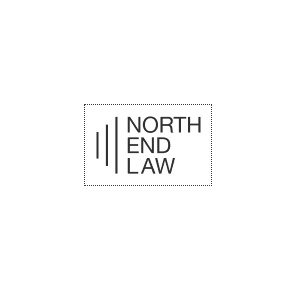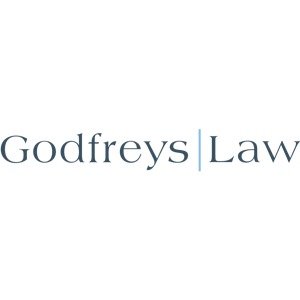Best Sustainable Finance Lawyers in New Zealand
Share your needs with us, get contacted by law firms.
Free. Takes 2 min.
Or refine your search by selecting a city:
List of the best lawyers in New Zealand
About Sustainable Finance Law in New Zealand
Sustainable finance is a growing area of law and practice in New Zealand. It focuses on integrating environmental, social, and governance considerations into financial decision making. This means that lenders, investors, companies, and institutions are encouraged or required to assess the long term environmental and social impact of their financial activities, not just the immediate profit.
In New Zealand, sustainable finance is closely linked to the country’s commitment to a low-emissions economy and the promotion of responsible investing. Laws and voluntary frameworks have been developed to help ensure that financial markets support New Zealand’s broader goals around climate change, biodiversity, and social responsibility.
Why You May Need a Lawyer
Sustainable finance is a complex and evolving area that blends elements of financial regulation, environmental law, corporate responsibility, and contract law. You may need legal advice or representation for several reasons, including:
- Ensuring your business or investments comply with sustainable finance regulations and guidelines
- Drafting or reviewing green loan agreements, sustainability-linked bonds, or other financial products
- Responding to disclosure requirements under climate-related risk regulations
- Assessing environmental, social, and governance risks in mergers, acquisitions, or other transactions
- Dealing with shareholder activism or questions about responsible investment policies
- Navigating government funding, incentives, or grants linked to sustainability outcomes
- Handling disputes or investigations related to greenwashing or misrepresentation
A lawyer experienced in sustainable finance can help you identify risks, meet compliance standards, and align your financial practices with New Zealand’s evolving legal expectations.
Local Laws Overview
Sustainable finance in New Zealand is guided by a combination of laws, regulations, and voluntary standards. Some of the most important aspects include:
- Climate-related Disclosures: Under the Financial Sector (Climate-related Disclosures and Other Matters) Amendment Act 2021, certain large financial entities must make disclosures about climate-related risks and opportunities
- The Zero Carbon Act: The Climate Change Response (Zero Carbon) Amendment Act 2019 sets targets for emissions reductions and supports improvements in climate reporting, including for financial institutions
- The Reserve Bank of New Zealand’s Oversight: The central bank expects financial institutions to manage climate risks as part of their standard risk management frameworks
- Voluntary Codes and Guidelines: Many organizations use the New Zealand Sustainable Finance Forum Roadmap and adhere to international frameworks like the Task Force on Climate-related Financial Disclosures (TCFD)
- ESG Integration: Market expectations are rising for companies and investors to integrate Environmental, Social, and Governance (ESG) considerations in investment, lending, and reporting practices
- Green Finance Products: There is a growing market for green bonds, sustainability-linked loans, and other innovative financial products
- Consumer Protection: Laws around fair trading and financial product disclosure apply to all finance products, including those labeled as green or sustainable, to prevent greenwashing
Frequently Asked Questions
What is sustainable finance?
Sustainable finance refers to financial activities that take into account environmental, social, and governance factors. It aims to support sustainable economic growth and positive social outcomes.
Who is required to make climate-related financial disclosures?
Large financial institutions, such as registered banks, insurers, and investment managers with significant assets, are required to make climate-related disclosures under New Zealand law.
What are green bonds?
Green bonds are fixed-income financial instruments where the proceeds are exclusively applied to finance or refinance projects that have clear environmental benefits.
What is greenwashing?
Greenwashing is the practice of making misleading claims about the environmental benefits of a product, service, or investment, which can lead to legal consequences under consumer protection laws.
Are voluntary standards legally binding?
Voluntary standards, such as those promoted by industry groups, are not enforceable by law but can suggest best practice and may become widely adopted expectations.
How does sustainable finance impact investment decisions?
Sustainable finance encourages businesses and investors to include environmental and social risk assessments in their decision making, which can affect where and how money is invested.
What legal risks exist for companies not complying with sustainable finance requirements?
Risks include regulatory penalties, reputational harm, loss of investors, and potential civil liability for misstatements or failure to disclose material risks.
Can individuals access sustainable finance products?
Yes, individuals can invest in green bonds, ethical funds, and other sustainable financial products, often through KiwiSaver or managed investment schemes.
How are Maori perspectives reflected in sustainable finance?
Maori values influence sustainable finance policies and practices, with increasing emphasis on kaitiakitanga (guardianship) and long term stewardship of resources.
What role do international regulations play?
International standards, such as TCFD or the Principles for Responsible Investment, influence New Zealand’s sustainable finance landscape and are often adopted or adapted locally.
Additional Resources
If you are seeking more information or official guidance, consider the following resources:
- New Zealand Sustainable Finance Forum - policy guides and reports
- Financial Markets Authority - information on sustainable finance and disclosure requirements
- Reserve Bank of New Zealand - climate risk expectations for financial institutions
- Ministry for the Environment - climate change policy, regulations, and guidance
- New Zealand Green Investment Finance - information on investing and funding for low-carbon projects
- Ministry of Business, Innovation and Employment - regulation and advice for financial service providers
Next Steps
If you are considering a sustainable finance project, need advice on compliance, or are facing a legal issue related to sustainable finance in New Zealand, the best approach is to consult a lawyer experienced in this field. Be prepared to provide relevant documents and an outline of your goals or challenges.
You may wish to:
- Contact a law firm with a dedicated sustainable finance or environmental law team
- Ask for an initial consultation to evaluate your needs
- Gather all relevant contracts, policies, and correspondence for review
- Stay informed about ongoing legal and regulatory changes by subscribing to updates from key agencies or industry groups
Taking these steps can help protect your interests and ensure your sustainable finance activities align with New Zealand’s evolving laws and standards.
Lawzana helps you find the best lawyers and law firms in New Zealand through a curated and pre-screened list of qualified legal professionals. Our platform offers rankings and detailed profiles of attorneys and law firms, allowing you to compare based on practice areas, including Sustainable Finance, experience, and client feedback.
Each profile includes a description of the firm's areas of practice, client reviews, team members and partners, year of establishment, spoken languages, office locations, contact information, social media presence, and any published articles or resources. Most firms on our platform speak English and are experienced in both local and international legal matters.
Get a quote from top-rated law firms in New Zealand — quickly, securely, and without unnecessary hassle.
Disclaimer:
The information provided on this page is for general informational purposes only and does not constitute legal advice. While we strive to ensure the accuracy and relevance of the content, legal information may change over time, and interpretations of the law can vary. You should always consult with a qualified legal professional for advice specific to your situation.
We disclaim all liability for actions taken or not taken based on the content of this page. If you believe any information is incorrect or outdated, please contact us, and we will review and update it where appropriate.
Browse sustainable finance law firms by city in New Zealand
Refine your search by selecting a city.

















